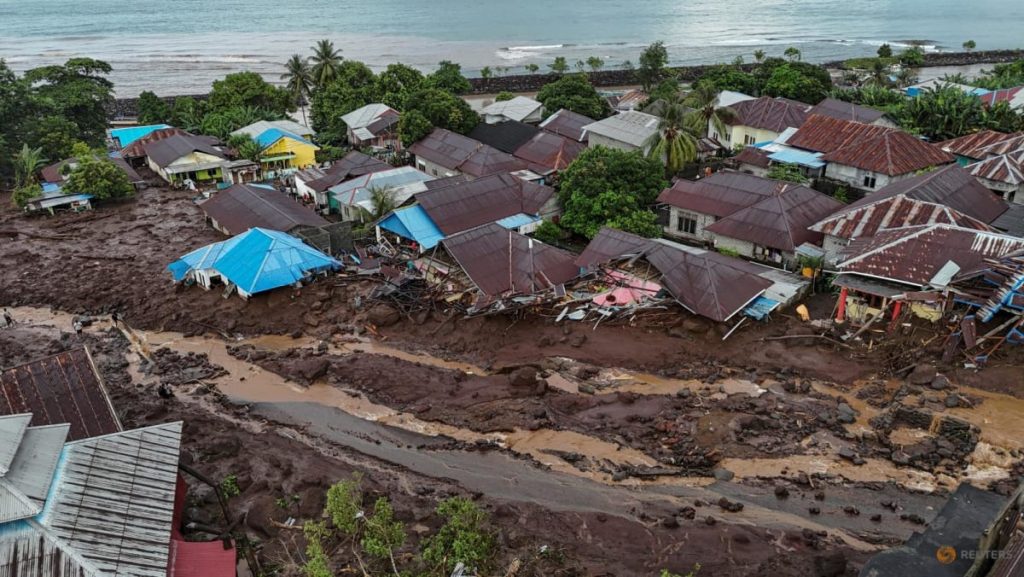Thirteen people were tragically killed and two others injured in Indonesia’s North Maluku province due to floods caused by heavy rainfall on Sunday. The floods also caused significant damage to 10 houses in Ternate city. The country’s disaster management agency (BNPB) has issued warnings that heavy rain may continue in the coming days, urging local residents to remain vigilant and follow directions from authorities to prevent further casualties.
With forecasts predicting ongoing heavy rain, BNPB has deployed a team to assist with evacuating victims of the floods. The search and rescue agency Basarnas is also actively involved in ongoing efforts to rescue victims who were affected by landslides and debris carried by the floodwaters. The tragic incident is a somber reminder of the dangers posed by natural disasters in Indonesia, a country prone to various forms of extreme weather events.
Earlier in May, West Sumatra province experienced devastating flash floods and mudslides that claimed the lives of over 60 individuals. These incidents highlight the need for effective disaster preparedness and response measures in Indonesia, especially in regions vulnerable to such calamities. The authorities are working tirelessly to ensure the safety and well-being of the affected population, while also emphasizing the importance of heeding warnings and instructions from emergency services.
As the government and rescue agencies continue their efforts to assist those affected by the floods, the significance of community awareness and preparedness becomes more apparent. Community members are advised to stay alert and ready to respond to potential threats, especially in the face of ongoing heavy rainfall. By staying informed and following safety guidelines, individuals can reduce their vulnerability to natural disasters and increase their chances of staying safe during such emergencies.
The tragic loss of lives in North Maluku serves as a grim reminder of the ever-present risk posed by natural disasters in Indonesia. The country’s diverse geography and climatic conditions make it susceptible to a wide range of natural hazards, including floods, landslides, earthquakes, and volcanic eruptions. Adequate infrastructure, early warning systems, and efficient emergency response mechanisms are crucial in minimizing the impact of such disasters and protecting the lives and property of the population.
In conclusion, the recent floods in North Maluku underscore the importance of proactive measures to mitigate the risk of natural disasters in Indonesia. While the authorities are working diligently to address the immediate aftermath of the floods, the need for long-term strategies to enhance disaster resilience and response capabilities remains paramount. Through continued collaboration between government agencies, local communities, and international partners, Indonesia can work towards building a more resilient society that can withstand the challenges posed by unpredictable and severe weather events.


